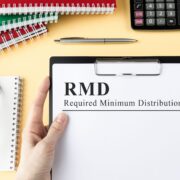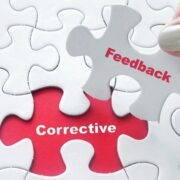Is it smart to invest in property in retirement? This is a typical question for people who are preparing for retirement, and it’s becoming a lot more topical during the COVID-19 pandemic. Increasing joblessness has triggered many individuals to rethink their retirement strategies, and home mortgage rates are hovering at historic lows– making refinancing or buying a brand-new house appealing options to think about.
These circumstances might materialize estate a prudent financial investment option for lots of people in retirement, but there’s a lot to consider before moving on. Here’s how to weigh the benefits and drawbacks of purchasing realty in retirement.
Advantages of buying genuine estate for retirement
Retirement savings options that have benefits designed to boost your finances, like a 401( k) match, are always a more effective option when preparing for retirement. But chances are you’ll have additional cost savings that you wish to use in retirement. Here’s where genuine estate could enter into play. What typically draws people to invest in real estate during retirement? Here are some benefits.
- Make rental income
If you are searching for an additional monthly boost to your earnings in retirement, leasing a residential or commercial property could be the answer. You have a few choices when it pertains to generating income from your genuine estate financial investment. You could purchase a 2nd house or commercial real estate, neither of which ought to interrupt your existing living scenario.
Or, you might purchase a house with an extra suite or additional spaces offered so you can reside in the house while leasing a portion of it. If the suite is separate, you may feel comfortable leasing this to long-term renters. Alternatively, you could select short-term rentals, which are growing in appeal for seniors. Airbnb reported in 2018 that 400,000 elders were hosting on the platform.
- Streamline your retirement plan
Purchasing the stock exchange can get complicated, so many individuals rely on stockbrokers to weigh complicated choices and invest for them. Yet as senior citizens age, it’s common to try to find ways to streamline monetary decisions. Doing so can help keep a retired person in control of their financial resources longer, which is particularly important– considering older monetary abuse expenses Americans anywhere from $2.9 billion to $36.5 billion every year.
If you choose an easier technique for investing in retirement, the property could offer an option. It can be easier for some people to comprehend how physical properties earn a return. Even though upkeeping a home can have its complications, these challenges are typically familiar to senior citizens who have owned homes throughout their working years.
- Tax advantages
In some cases, owning a home can have significant tax benefits. At a basic level, you have the ability to cross out the expenses of leasing your residential or commercial property and devaluation. And depending upon your monetary situation and place, you may certify for federal government rewards meant to assist you to upgrade your home.
Don’t forget about the home mortgage interest deduction on your individual taxes. Plus, you could avoid capital gains tax when it comes time to sell your home. If you have lived there for two of the preceding 5 years, you could avoid tax on earnings as much as $250,000 ($ 500,000 for joint filers).

Threats to weigh
Purchasing realty in retirement isn’t entirely risk-free. Here are some unfavorable outcomes you absolutely have to weigh before leaping in.
- Increased work
Owning a house can be a lot of work, and unforeseen expenses do arise. Ending up being a property owner can likewise be unforeseeable; having bad tenants or no occupants for numerous months are both costly scenarios. If you do not want to take an active role in managing your home, or if health factors restrict it, then realty investing might not be the best method for you.
- No ensured return
Unlike a guaranteed investment, such as a bond, it isn’t a guaranteed bet that your property will rise in worth. While many people expect their home to appreciate at a rate a minimum equivalent to inflation, there’s constantly a chance that residential or commercial property values will decline. If you have 25 years to wait, a dip in the housing market may not be a substantial issue, but if you want to make a return in the short-term, owning a home becomes a bigger threat.
There’s also no warranty you’ll have the ability to rent your residential or commercial property. Having an empty unit for numerous months might be financially destructive, particularly if you have financial obligations on top of your home loan to pay. Data reveal adults born between 1949 and 1954 have approximately $22,951 in non-mortgage debt.
- Minimal flexibility
If your finances alter and you require to access funds rapidly, doing so might be challenging if they’re purchased a home. You’ll have to either secure a house equity loan or offer the home, both of which could take longer than tapping liquid financial investments. If you’re thinking about buying a house in retirement, then you need to likewise have some financial investments with high liquidity, such as a high-interest cost savings account, certificates of deposit, stocks, shared funds, or bonds.
How to manage property in retirement
As soon as you have weighed the benefits and drawbacks of purchasing a property in retirement, it’s time to create a technique for moving on. With the federal funds rate anticipated to stay low until 2023, therefore assisting to keep home mortgage rates low, numerous potential house owners are thinking about getting a brand-new home loan or refinancing their existing loans.
If you already own a home and wish to buy a second house as a retirement investment, re-financing your current mortgage might be a smart technique, specifically if you’re among the leading cities where refinancing borrowers conserve the most in lifetime payments. In Boston, for instance, customers can conserve $27,277 over the lifetime of their home loan by refinancing. However, think about the pros and cons of refinancing in retirement.
Pros of refinancing your mortgage
Decrease your existing regular monthly bills. If you’re trying to save for a 2nd down payment, then reducing your current bills by refinancing your home mortgage at a lower rate could help you find some extra room in your spending plan, helping you grow your savings faster.
Get money now. If you want additional cash on hand to purchase a 2nd residential or commercial property or make upgrades to your current home, you could think about cash-out refinancing. In this circumstance, you’d get a brand-new home mortgage for more than you currently owe on your house and take house the distinction in cash.
Get a shorter term. For homeowners who wish to own their home outright heading into retirement, refinancing now to get a shorter-term could make that take place quicker. Although your regular monthly payments will be greater, you could substantially cut interest costs.
Cons of re-financing your home loan
Refinancing isn’t the right choice for everyone aiming to buy a home in retirement. Here are a few of the disadvantages.
You take on long-term debt. Numerous debtors like to extend their term when they refinance, so they can reduce their monthly payments. Retired people who do this could be locking themselves into mortgage payments for the rest of their lives. There’s also a chance you might not outlast your prolonged home loan, which could leave your successors with problems when it comes to settling your estate.
You might decide to move. Lots of mortgages aren’t portable, which means you can’t take them with you if you choose to scale down or relocate to a different place. Many retired people decide to do this to be closer to the household or reside in a more preferable climate. You might end up paying a charge if you sell your house and repay your whole home mortgage early.
Can you pay for the payments? While refinancing your home to get a much shorter term might interest you in theory, you could get yourself into financial trouble if you don’t have sufficient money to continue making the greater monthly payments until the end of the loan. Prior to doing this, think about how much longer you plan to work and if any set earnings you have heading into retirement will still be adequate to pay your mortgage at the increased month-to-month rate.























Comments